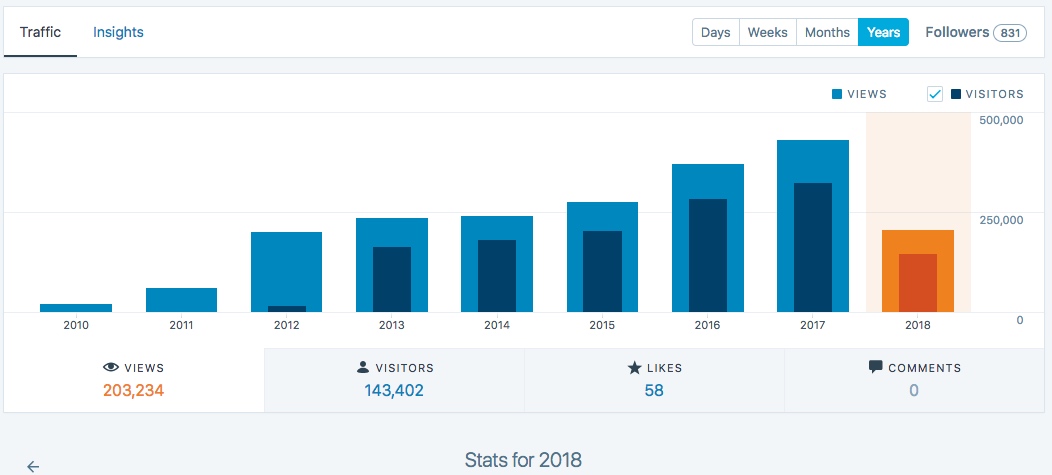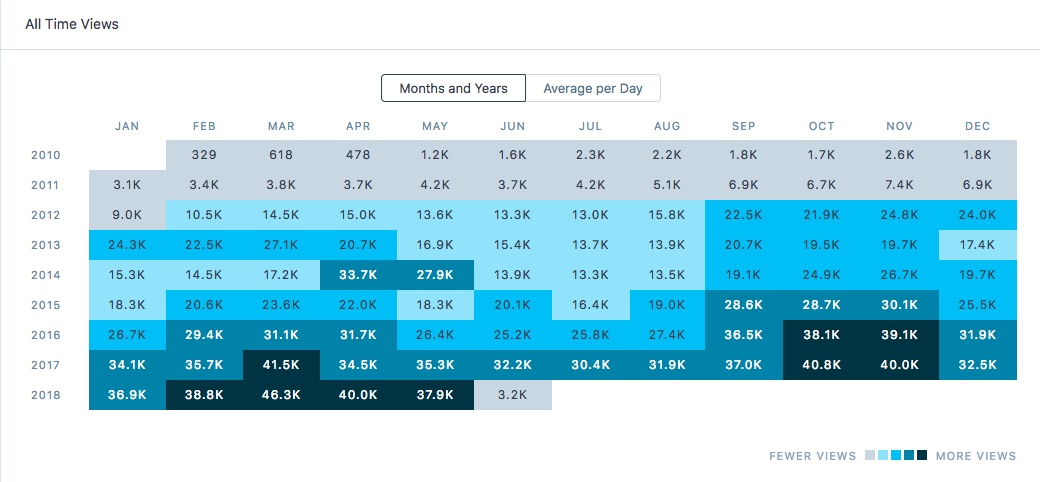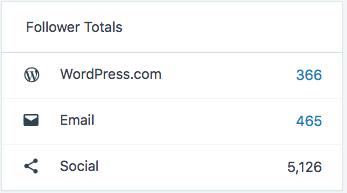Over the years I have received well-meaning, but ultimately inaccurate — or even harmful — advice from superiors or colleagues at work and friends about how to “do” social media and blogging. I have been reflecting on this topic a lot lately. Here are some things I have been told (which are totally bogus) and my responses to them.
“Facebook should be for personal stuff. Keep work posts to LinkedIn or Twitter/X.”
This is bullshit. Your social media accounts are for whatever you want them to be for. I have had people unfriend or unfollow me on Facebook because they only want to see photos of my personal life. I share some posts about personal things occasionally, but not often… and that’s my choice.
I share stuff on social media channels, in part, to connect with people who have similar interests to me. If those things don’t interest you, I respect that, but don’t preach to me about how to use my own social media accounts.
“Blogging about work-related topics isn’t a hobby. You need non-work-related hobbies.”

I remember a senior administrator telling me this. They were criticizing me when I said that I like to blog as a hobby. They opined that hobbies should not have anything to do with work. Your hobbies — what you do outside of work to relax, blow off steam, or decompress — is your own business. If it happens to relate to work, that is also your own business.
I like blogging about things I am interested in. I happen to be interested in topics that relate to my job — ethics, integrity, higher education, etc. No one pays me to blog, so it is not technically work. It’s my blog and I’ll write about whatever I damn well please.
For the record, I have some hobbies that do not relate to my profession, but I may not post about them online. I don’t post photos of every meal I cook, even though cooking is one of my hobbies. What I share on social channels does not represent the entirety of my life.
Well-Meaning but Misplaced Advice About Online Activity
I have found wonderful online communities and individuals whom I would not have connected with any other way, if it were not for social media. In some cases, there are individuals whom I have never met in person, but yet I feel an affinity for, because we share similar interests and have meaningful conversations and interactions about things that are mutually important to us. Over the years, I have found that when I have met someone in real life for the first time that I have had a connection with online about a topic of mutual interest, the real-life encounter is easy, authentic, and often fun.
Conversely, there are people in my social media circles whom I originally met in person that I am not all that close to, or haven’t seen in years or decades. Some of these individuals seem to think it is OK to offer unsolicited advice about how to use my own social media accounts when the reality is that they don’t genuinely care much about me. If they did, they would know that I would find it more supportive if they just appreciated me for who I am, rather than who they want me to be.
Concluding Comments
I am really lucky that I enjoy my work — a lot. I have a great job that happens to align brilliantly with my strengths, expertise, and interests. I recognize this is a privilege and even a luxury. Not everyone has such luxury. Someone said to me recently, “When your interests, passion, and expertise line up with your job, you have hit the proverbial jackpot.”
That comment caused me to reflect on these criticisms in a new way. Before the neoliberalization of higher education, being a scholar was as much a lifestyle as it was a job. Being a scholar is part of my identity. It is part of who I am and I recognize that this a tremendous privilege. There are many things wrong with higher education and the system, as a whole, does not afford most of us the luxury of being scholars. There are many things that I am not good at, and some of them I am downright lousy at. But when it comes to things I am passionate about (e.g., academic integrity), I’m full on — all the time. And you know what? That. Is. Perfectly. OK.
For what it is worth, it has taken me years, no… decades, to get to a place where I can just say that.

So, I’m just going to own it. I have worked hard — exceptionally hard — for the life that I have, which is that of a scholar. It is not perfect, by any stretch. I dreamed of being a professor from the time I was little. I may not sit around sipping brandy while sitting in a leather chair in a library with shelves lined from floor to ceiling with books. That reality does not exist — at least not for me. My version of being a scholar includes having a messy desk, half-read books strewn all over my untidy house, and active engagement with my online communities, my social media, and my blog.
I am in a stage of my career now, as a tenured associate professor, that I can say things that I felt too vulnerable to say as a precariously-employed or untenured academic. This blog post is for anyone out there who has been chastised or criticized by administrators, colleagues, or anyone else who has made you feel “less than” for being yourself in online spaces and communities. If you want to blog or post about topics that matter to you, I’m right there with you. If those topics relate to your work, that’s cool with me – and this should also be OK to others. If your employer does not oblige you or expect these things from you and you are engaging in these activities because they feel meaningful and important to you, then all the power to you. You may be giving of yourself, your expertise, and your wisdom in ways that extend beyond the requirements of your job – and that can actually be a pretty special and generous thing to do.
What I ask of my colleagues and superiors is that you accept me for who I am. The same goes for colleagues and others who also may be similar to me, colleagues who engage in online and social media activities about stuff that is important to them – especially when it might relate to advocacy, activism, and improving the lives of other people (in my case, students). Reserve your judgements about who a person should be and appreciate them for who they actually are. In my opinion, that is a more genuine form of acceptance, support, and even friendship. In the meantime, I am just going to sit here on a Saturday morning and keep blogging about stuff that matters to me…
____________________________
Share this post: A Scholar’s Thoughts About Social Media and Blogging – https://drsaraheaton.wordpress.com/2024/03/02/a-scholars-thoughts-about-social-media-and-blogging/
This blog has had over 3.6 million views thanks to readers like you. If you enjoyed this post, please “like” it or share it on social media. Thanks!
Sarah Elaine Eaton, PhD, is a faculty member in the Werklund School of Education at the University of Calgary, Canada. Opinions are my own and do not represent those of my employer.
Sarah Elaine Eaton, PhD, Editor-in-Chief, International Journal for Educational Integrity



 Posted by Sarah Elaine Eaton, Ph.D.
Posted by Sarah Elaine Eaton, Ph.D. 









You must be logged in to post a comment.